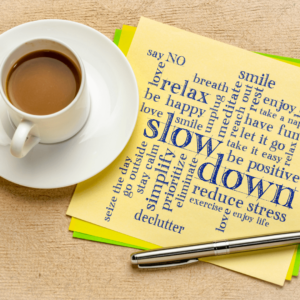Students are developing skills worth bottling
Sample Cover Letter - IV
By Natascha Mirosch
Science and art in equal parts are what makes a good wine, according to Robert Learmonth.
Professor Learmonth is co-ordinator of the Bachelor of Technology (Wine) at the University of Southern Queensland in Toowoomba.
Winemaking in Queensland dates back to the late 1800s when German and Italian immigrants settled the South Burnett and Granite Belt regions but it’s only in the past few decades that the industry has started to receive much attention or government investment.
Today, there are 1300 hectares under vines, with about 170 wineries in an industry said to be worth more than $40 million annually.
While there’s been much pessimism lately over the wine glut and its effect on the industry in general, Learmonth says job prospects in Queensland for potential winemakers are good.
“It’s a bit different here because we have lots of small players so we’re not suffering as much,” he says. “The industry is tourism-focused with a lot of the wine being sold locally.”
At present, there are around 50 students studying winemaking at USQ, the only university in the state to offer the qualification.
So who does it attract?
While you’d imagine winemaking would appeal to Gen Ys, Learmonth says the course attracts a wide demographic.
“Our youngest has been 17 years old and our oldest 70,” he says.
“Some are fresh out of school, others are already in the industry and just want to refresh their qualifications.
“We have a couple of husband and wife teams who are doing the tree change and want to open a winery.
“We have optometrists and motor mechanics as well as some people working in agriculture.
“Because we offer the course via distance education, we even have a student in the US and one in the UK.”
The degree is three years’ full-time and six years’ part-time with students undertaking subjects such as chemistry and biology, wine analysis, wine production, viticulture and some business modules.
A large part of the course, however, is hands-on.
“Students are encouraged to work in the industry,” Learmonth says.
“They also have to do residential weeks where they do intensive training at the College of Wine and Tourism in Stanthorpe.
“They’re taught viticulture and basic chemistry and biology, often in situ.
“Throughout the course the residential schools are at different times, so they get to experience a vintage, then in year three they do a spring residential when it’s all about post-fermentation.”
While bigger vineyards employ different people to take care of the vines (viticulture) and to make the wine, in Queensland, because of the relatively small size of the vineyards, winemakers generally wear both hats.
“You have to be willing to work hard and get dirty,” says winemaker Stephen Oliver of Harrington Glen in the Granite Belt.
“At vintage in particular, you spend the day covered in grape juice and skin and wine. Days during vintage are long, starting about 5am. When the fruit’s coming in you have to check the pickers are doing the right areas and you usually stay processing the fruit until 4.30pm/5pm.”
Last year Oliver was a finalist in the Wine Society’s Young Winemaker of the Year competition – the only Queenslander in the history of the competition.
At Harrington Glen, a 10-minute drive from Stanthorpe, Oliver makes about 12,000 bottles a year from shiraz, cabernet sauvignon, verdelho, merlot and viognier grape varieties.
SO YOU WANT TO BE A WINEMAKER?
Study: To study the Bachelor of Technology (Wine), school leavers go through QTAC as they do with any other university degree.
Each application is judged on its merit and will take into account factors such as previous work experience.
Course starts in March.
Duration: Part-time six years, full-time three years.
Career opportunities: You can achieve employment as a viticulturalist, winemaker and operations manager in Australia and overseas in fields such as vineyard and winery operation, production management, quality control, marketing and export, research and development, brewing and food processing.
He also helps with other duties, including vine management which includes pruning and making decisions such as which sprays to use, canopy management and bunch thinning. Just before harvest he also has to take the grapes to be tested at the College of Wine and Tourism for sugar, pH and acidity levels to see when is the perfect time to pick.
“You need to have a little science knowledge to be a winemaker, but it’s not rocket science,” he says.
Oliver also assists at the cellar door, guiding visitors through tastings.
“Being a winemaker is a bit like being a chef,” he says. “You have raw ingredients and a vision of what you are trying to do with them.
“The wine is the end result and when you make a good one, it’s immensely satisfying.”
Article from The Courier Mail, May, 2010.


